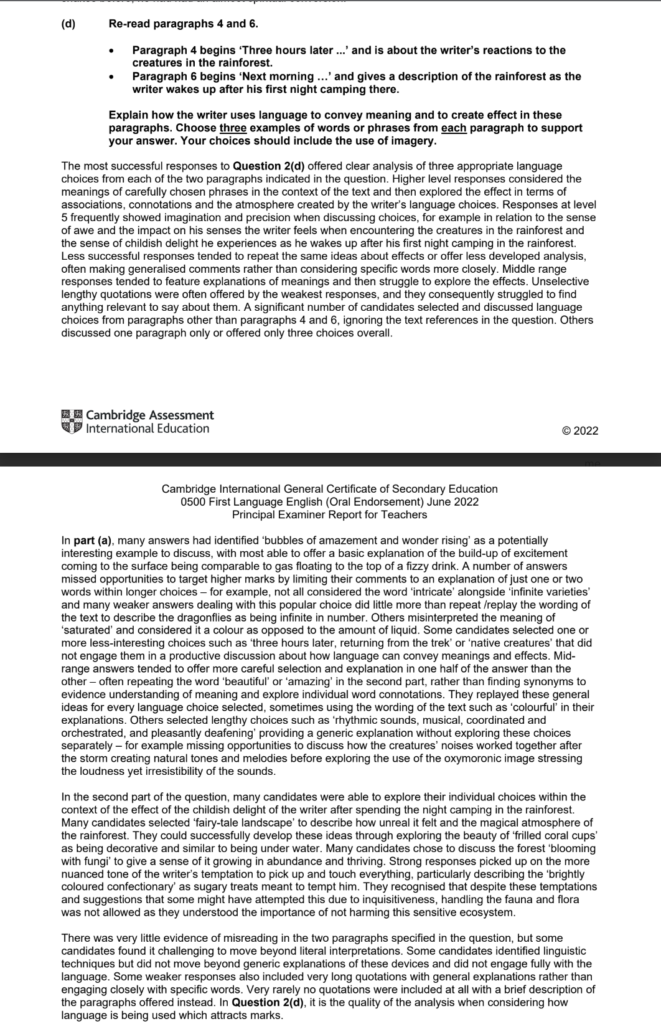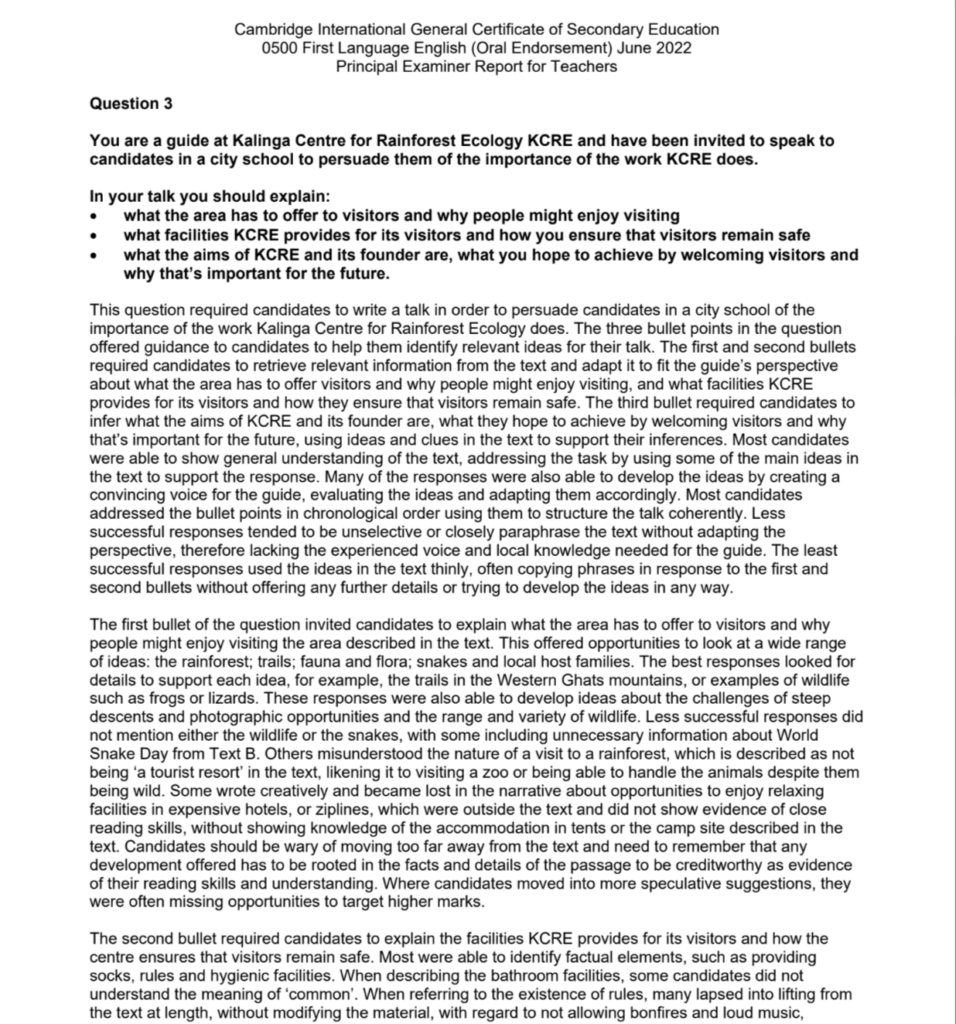The Magic of Examiner Reports

Examiner Reports are released by Cambridge International after each examination session. These reports summarize the general performance of students, highlight common strengths and weaknesses, and provide constructive feedback for both students and teachers.
Put simply?
They’re awesome, and if you want to do well on the IGCSE, you should read them.
In this blog post, we will discuss the immense value of reading Examiner Reports for the IGCSE First Language English 0500 examination and how they provide invaluable insights into what examiners are looking for.
At the same time, they reflect the overall judgement of examiners for the essays of students for particular examination sessions and therefore provide key insights into the way that Cambridge as an organisation evaluates different scripts, which in turn can help you to better contextualise the marking criteria that has been provided in the mark scheme documents that you have no doubt seen so far.
“But Victor!!!” you might be saying…“I don’t want to spend my time reading dumb stuff like that!!!!”
Well hold on, hold on.
What if I told you that this ‘dumb stuff’… Was actually one of the master keys towards unlocking excellence on the IGCSE First Language English exam?
Unlocking the Marking Criteria
One of the difficulties of understanding how to do well in a language-based exam for students is that there are various ways to operationalize excellence in language. While it’s true that for other exams such as mathematics and science exams some degree of creativity and insight can lead to novel approaches and answers, it remains true that the possible sample space of excellent responses for First Language English and other exams is much wider, and it also remains true that it is more difficult for students to understand how to operationalize excellence through their work just from reading the marking criteria.
Here is where the \magic/ 🪄 of examiner reports comes in!
Examiner reports are absolutely invaluable in helping you to unlock the marking criteria for the IGCSE First Language English exam, because they offer comprehensive and actionable steps for you if you’re practicing for the exam, and they serve as a wonderful practice aid for you to check whether you are able to do well in particular practice exams.
Let’s look at the first part of the examiner report for the June 2022 IGCSE.
Observe here that there are key messages for each paper, and also general comments about what constituted excellence for the paper. We won’t discuss the entire thing, but there are also specific analyses on a question-by-question basis.
I won’t go into everything here today (more resources will be provided to our Premium members soon).
Here’s one sample:

…And here’s the next:

Wow.
As you can see, the report specifically breaks down these questions.
Think about that and the value that it’s offering – in the first case, it is telling you exactly how the best candidates did question 2d) and how they came to deliver responses on Writer’s Effect.
In the second example, it is literally breaking down Question 3 for you by telling you the ways in which the candidates approached the question and the way that people thought about the question, which you can in turn reference as you write your own exam responses; you could implement a routine of practicing a past paper, following that up by having your essay graded (submissions for essays to our essay bank(s) are open!)
To sum up, why are examiner reports valuable to you?
(sorry to be annoying, but you’ll have to sign up for a free or premium membership to read the next bit c: – reminder that purchasing the book gains you access to premium member privileges… For now!)
If you haven’t signed up yet, make sure to Join Now!
Conclusion
I hope I’ve shown you that Examiner Reports for the IGCSE First Language English 0500 examination are a powerful tool for students seeking to understand what examiners are looking for in the context of the marking criteria, and also that they are something valuable to look at in your quest for mastery or for convergence towards writing stellar essays that fit the marking criteria while at the same time helping you to excel.
By analyzing these reports, students can gain invaluable insights into the expectations of examiners, avoid common pitfalls, learn from real examples, and fine-tune their writing techniques to achieve the highest possible marks.
As the saying goes, knowledge is power, and in the case of the IGCSE First Language English 0500 examination, Examiner Reports are a key to unlocking that power – they are not the only key, but are definitely something that you should consider as part of your repertoire!



